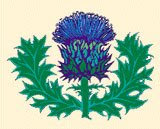by Alexander Boot
Palgrave Macmillan, New York, 2009
ISBN 13: 978-0-230-61586-1
ISBN 10: 0-230-61586-4
The good: Draws attention to the debate over Tolstoy's mental and physical health.
The bad: Lack of documentation; use of inflammatory language; very small print; the price of the book.
Leo Tolstoy is an icon in world literature. Countless biographies and essays have been written about him, although neutrality and objectivity have eluded many of the authors of those works. It would seem that Tolstoy is one of those persons who inspires either great devotion and veneration or great revulsion and denigration.
Alexander Boot's book, God and Man According to Tolstoy, falls into the latter category.
An important part of this book, and to my mind its chief value, is that it brings attention to the debate over Tolstoy's mental and physical health. This debate, beginning in the 19th century before Tolstoy's death, ranged from what Mr. Boot says today would be called severe personality disorder and/or narcissistic personality disorder; to discussions of whether Tolstoy suffered from epilepsy.
Mr. Boot reports that Tolstoy has been diagnosed with epilepsy. He seems to be relying heavily on a report written in 1930 by a Russian psychiatrist named Aleksandr Mikhaylovich Yevlakhov entitled Konstitutsionalnye osobennosti psikhiki L. N. Tolstogo. And herein lies one of the major shortcomings of Mr. Boot's book: it is sadly lacking in documentation. While there are some endnotes, they are most often merely explanatory rather than citing sources of the information he reports. Yevlakhov is said to have analyzed thousands of pages written by and about Tolstoy, resulting in his diagnosing Tolstoy as suffering from epilepsy. This implies that Yevlakhov did not meet with Tolstoy personally.
Epilepsy is sometimes accompanied by psychiatric disorders such as depression and anxiety, and Mr. Boot cites this as supporting the view that Tolstoy was epileptic It is undeniable that Tolstoy was subject to depression, as evidenced in his diaries and letters, as well as observations recorded by family and friends.
A list in God and Man According to Tolstoy which purports to show that Tolstoy had an inherited predisposition to mental illness contains at least one serious error: Tolstoy had only one sister, not two as the list states; and other items on this list are questionable. Whether this list comes from Yevlakhov, or from some other source, or was compiled by Mr. Boot himself is unclear.
The question of whether Tolstoy suffered from epilepsy was also addressed by John R. Hughes of the Department of Neurology, School of Medicine, University of Illinois at Chicago in his 2004 study entitled "Did all those famous people really have epilepsy?" Dr. Hughes concludes that Tolstoy was not epileptic, that the seizures suffered by Tolstoy as he was dying "were very likely reactive attacks, associated with a very high fever, rather than a manifestation of epilepsy with its spontaneous seizures." On the issue of whether Tolstoy was epileptic, I put more credence in Dr. Hughes' views than in Yevlakhov's as reported in God and Man According to Tolstoy.
Did Tolstoy suffer from a personality disorder? This book does not convince me that he did.

No comments:
Post a Comment